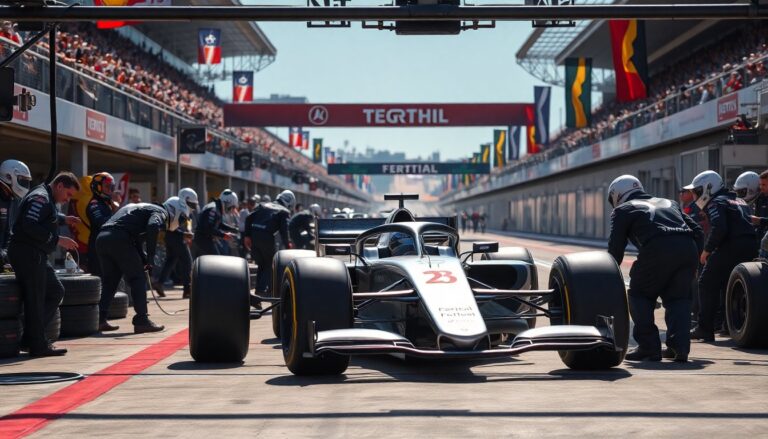Argomenti trattati
Formula 1, commonly known as F1, transcends traditional sports; it represents a global phenomenon that captivates millions of fans worldwide. Since its inception in 1950, F1 has undergone significant transformations, particularly in technology and race regulations. This article examines the history of Formula 1, highlighting key milestones, technological innovations, and the sport’s cultural significance.
The origins of Formula 1
Formula 1 emerged as a solution to the demand for a standardized format in motor racing. The inaugural World Championship took place at Silverstone in 1950, showcasing prominent teams such as Alfa Romeo and Ferrari. The early years of F1 were characterized by the supremacy of Italian manufacturers and iconic drivers like Juan Manuel Fangio, who secured five championships throughout the 1950s.
Technological innovations
Formula 1 has long been associated with cutting-edge technology. The introduction of the rear-engine car in the 1960s marked a pivotal moment for the sport. This innovation allowed for improved weight distribution and aerodynamics, which ultimately led to faster lap times. The 1970s brought about the advent of ground effect aerodynamics, where car designs were optimized to generate downforce, enhancing grip on the track.
The impact of safety regulations
The excitement of speed in F1 is accompanied by inherent risks. The tragic accidents of the late 1960s and early 1970s, including the loss of drivers such as Jochen Rindt, necessitated a reassessment of safety protocols. In response, the FIA (Fédération Internationale de l’Automobile) implemented rigorous safety regulations. This led to innovations like the survival cell and enhanced crash barriers. These advancements have significantly decreased fatalities and injuries, making the sport safer than ever.
Technological advancements in motorsport
In recent years, the landscape of motorsport has been transformed by significant technological innovations. The introduction of hybrid power units in 2014 represented a pivotal moment toward sustainability in Formula 1. These power units merge traditional internal combustion engines with electric motors, enabling teams to enhance energy efficiency while maintaining high performance levels. The energy recovery systems (ERS) implemented in these vehicles capture energy that would otherwise be lost, paving the way for a more sustainable future in motorsport.
The cultural significance of Formula 1
Beyond the racetrack, Formula 1 has emerged as a prominent cultural phenomenon. The sport has cultivated a vibrant community that transcends geographical boundaries, uniting fans from various backgrounds. Grand Prix events in cities such as Monaco and Singapore are not just competitions; they embody cultural celebrations that showcase glamour, speed, and cutting-edge technology.
F1 and global markets
Formula 1 has been instrumental in the globalization of motorsport. With races spanning five continents, the sport has tapped into previously unexplored markets, including Asia and the Americas. The launch of the Formula 1 Esports Series has further captivated younger audiences, merging traditional racing with the excitement of digital competition.
The future of Formula 1: challenges and opportunities
Formula 1 is at a pivotal moment, navigating challenges such as environmental concerns and the necessity to sustain fan engagement. The landscape of motorsport is evolving rapidly, driven by advancements in technology and shifting audience expectations.
Despite these hurdles, the sport’s rich history of innovation, fierce competition, and profound cultural impact ensures that Formula 1 will remain a vital part of the motorsport world. The commitment to pushing boundaries has shaped its identity and will continue to attract enthusiasts for years to come.
Behind every race is a story of perseverance and excellence, showcasing the passion that fuels both drivers and fans. As the sport embraces sustainability and adapts to new technological advancements, it is poised to engage a broader audience while honoring its storied past.

